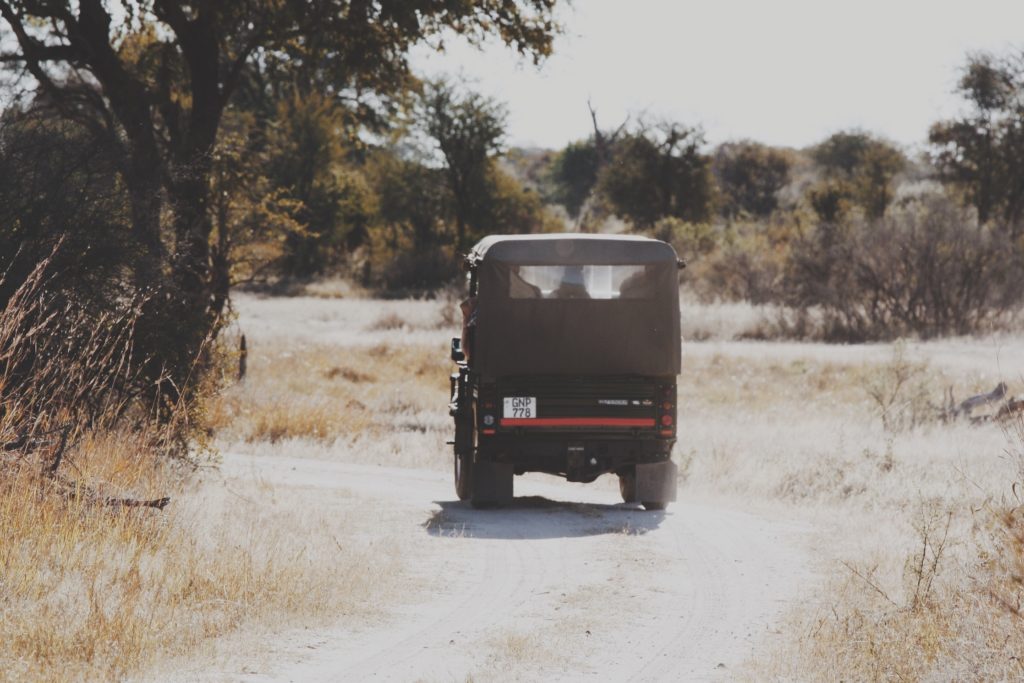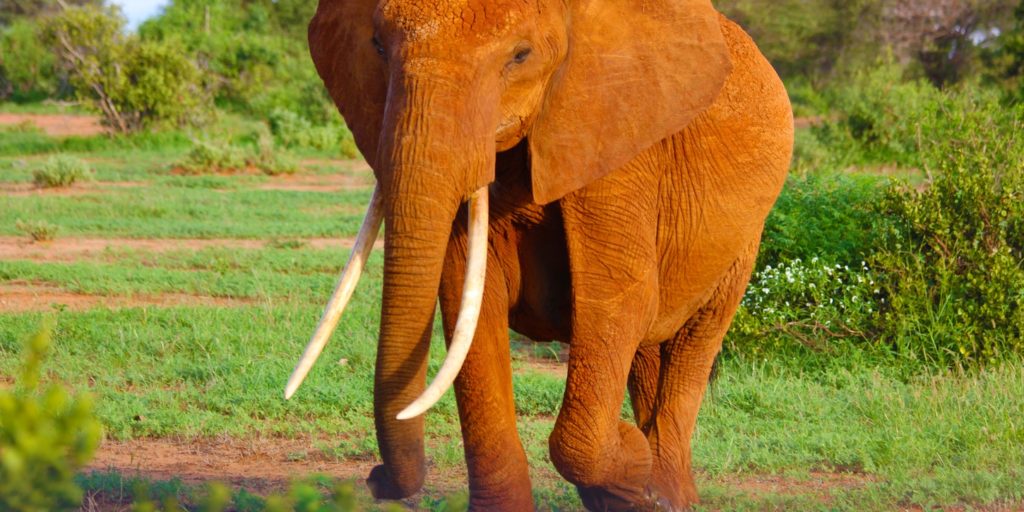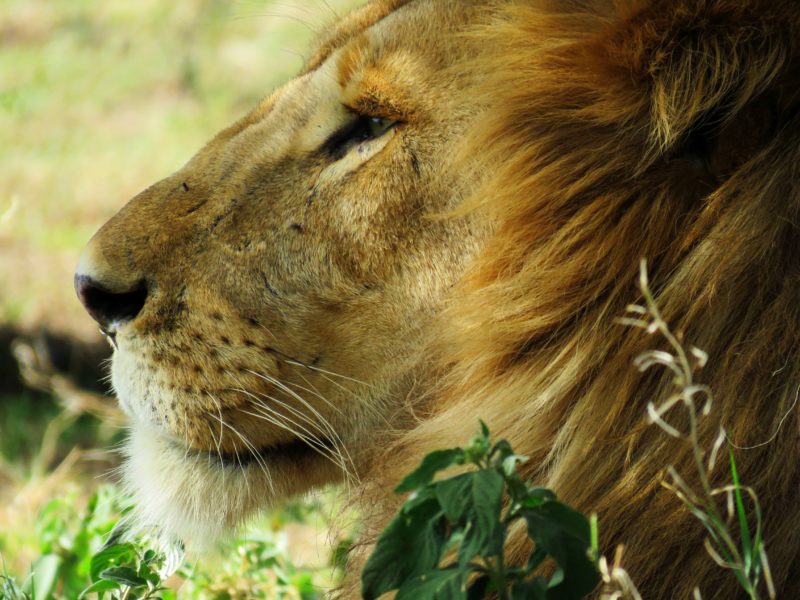Ever since I was a little girl the idea of roaming the plains of Africa enticed me. Back then Africa was a giant piece of the globe I had no in depth understanding of and all the countries melded together into this large and elusive land where lion cubs roamed elephant graveyards and ran from cackling hyenas. Yeah, it was all Lion King.
Many days were spent daydreaming of bush walks, and though my backyard was no Serengeti, my imagination was allowed to roam wild. I imagined a safari being this adventure where man and beast coexisted in reverence, respect, and a healthy fear of each other.
Now, I’m a little wiser. Africa is no longer one entity to me (thanks, internet) ; it’s a gorgeous and massive jigsaw puzzle of countries that call to me, but I can’t pretend to understand the issues of each country deeply enough to make an informed decision on where to visit and who to support. For this reason, I decided to start small, and with just one country: Kenya.
Safaris are no inexpensive trip and for most of us, they will be a once in a lifetime experience. For that reason, I take it really seriously to do my due diligence to ensure the company I am supporting is also supporting the local community, caring for the animals, and working in harmony with the environment that sustains their business.
These are all crucial things to think about when taking any trip or supporting a business (especially in the travel industry) because you have all the power to impact the planet for the good! Every single dollar you spend is a vote, and how good it feels to vote for the benefit of everyone — including yourself.
I thought you’d like to see some of the questions that I’m sending to a few prospective companies to do my research. I’ve kept it brief for this preliminary round of interviews — I asked 8 companies for their answers and out of those I asked there were only 2 that met the requirements which align with my beliefs about responsible tourism.
Today I am going to share the Q&A with those companies as well as some insights that I’ve gotten from others that are not included.
One of the first questions I ask companies is if they directly – or indirectly – support canned hunting. What is canned hunting? Glad you asked — it’s when animals are raised only to be hunted by wealthy trophy seekers. Ugh.
It’s an ugly business and while many make claims this supports conservation, it’s against my personal beliefs so it’s something I look out for. Check out Canned Lion to learn what it means when these gorgeous animals are bred for the bullet and how you can avoid supporting this.
Moving onto the fun part — the Q&A. Let’s start with Chris Morris, the Director of Into Africa who was able to give me some of his time to answer my questions. Into Africa offers ethical safaris in Kenya and Tanzania and as you’re about to see – they’re amazing and well deserving of your business.
In your view, what unique challenges does East Africa face when it comes to responsible tourism?
Ensuring ground operator suppliers provide the working conditions for staff and benefits to local communities they have agreed to.
It’s very difficult to monitor what actually happens on the ground.
Many suppliers will pay lip-service to responsible tourism – knowing that’s what us western cultured left-leaning folk want to hear – but operate almost feudal employment practices.
How is your company making a positive impact on the triple bottom line (economic, environmental, and social) in East Africa?
Over 17 years of operating IntoAfrica has sent six million US dollars (I can hardly believe it myself seeing it written down like that) into the Kenyan and Tanzanian economies – one of my concerns though is that that has not been as fairly distributed as I would have liked.
But it has provided employment for hundreds of folk (mostly men) and consequential support for their families and of course all the spin-off factors. We’ve also run several high profile aid project mostly assisting schools with equipment or sponsorship, totalling $37,000 – I keep accounts.
I’ve also paid profit share bonuses to our African staff and that runs to $50,000 so far.
Does your company support (either directly or indirectly) canned hunting?
Absolutely not
Are you able to cater to vegan travelers?
Yes. It’s easy. We buy lots of local fresh foods and pulses, carbs, fruits all in abundance. But interestingly, when some of our guests who have very specific diet requirements, see how local people live their lives, desperate for any food they can get, they feel embarrassed about the efforts the locals go to to accommodate all their needs.
Wow. I was honestly so impressed to hear the wonderful work that IntoAfrica is doing in Kenya and beyond. This is exactly the kind of company that I’d want to support with my business, and the best part is, I wouldn’t feel like I was missing out on an experience.
That’s the beauty of responsible tourism. More than a quick “hit it and quit it” kind of travel, when you look into the impact that your visit will have on an individual, their family, community, and life — you can’t help but feel closer to the destination and it’s people.
Many people fear that responsible travel might be boring, or more expensive but in reality it’s the exact opposite. You’re getting a souvenir that lasts a lifetime and leaving a positive impression in your wake. By asking questions you develop a deeper relationship with the business and understand their ethics — I encourage any of you who are looking to take a vacation to go ahead and ask the questions that you’re wondering.
Feel free to copy and paste the ones I’ve used and include those that are particularly important to you, too. By showing tour operators and agencies that you take your relationship with the destination seriously you are creating change. Truly, it’s that easy. Just ask.
I’d like to highlight something that Chris said, though about companies and providers offering lip service. This is something called Greenwashing and is unfortunately very common in the responsible tourism sector as we grow more conscious of our collective impact on the planet.
For this reason I did not include the response of some companies that were interviewed as they forwarded my inquiries to their marketing department. If this happens to an inquiry you make — be very wary. While marketers certainly serve a purpose in promoting ethical companies I’m always hesitant to accept a marketing response, especially when it comes from a large PR company who is not on the ground nor has any tangible evidence or vested interest in the company beyond their monthly retainer rate.
Sadly greenwashing is just as big of an industry as responsible tourism, but now that you’ve got the insider info on what red flags to look for, I know you’re going to be able to snuff out the dung and track down the right companies for you.
Next up is Sophie Grant of El Karama Eco Lodge. They are a quaint family run lodge in Laikipia, Kenya who also offer safari services and take their impact on the triple bottom line seriously, including some amazing feats of solar power. I’m really impressed with their dedication to the environment as well as their intent to keep prices reasonable for all travelers.
In your view, what unique challenges does East Africa face when it comes to responsible tourism?
Growing urbanised population who have little or no direct experience of wildlife, wilderness, lack of understanding of the vital importance of biodiversity and responsible management of natural resources and a lack of support and infrastructure for those seeking to attain best practice in this field including pressure of high taxation and levies for small medium businesses, which drives up prices for tourists.
How is your company making a positive impact on the triple bottom (economic, environmental, and social) in East Africa?
Education of our team, guests and community contacts, providing permanent employment opportunities, using local procurement strategies, strict self imposed environmental policies and practices, use of renewal energies including 100% solar energy for ALL operations, showcasing innovative technologies like biogas for heating water, building from recycled materials, adopting and teaching a reduce, reuse, recycle policy and banning plastic bottles ‘throttle the bottle’ the list goes on…
Sophie, can just one tourist make a difference?
Yes, every single person who walks over the ‘threshold’ of our business makes a difference providing they have an open mind. If tourists are discerning and choose responsibly managed lodges and safaris, the money they spend can be responsible for grass roots change through employment, engagement and education. But not all businesses operate from this ethical standpoint and that is the challenge. Choose carefully.
There you have it. Just one tourist — YOU — can make a difference. The next time you’re searching for a Safari, for a tour, or for a quick getaway, take the time to make your trip more personal, more responsible, and more enjoyable.
Everyone feels better when they’re doing a good deed, and in the case of responsible tourism, this is a good deed that will give you memories for a lifetime.
Please keep these companies and these questions in mind the next time you’re looking for a responsible visit to Kenya and check back next month to see my interview with several South African safaris. In the meantime, have you seen Google’s new release of a virtual safari in South Africa? The parks are at your fingertips — no jetlag, no sunscreen. 
Please note this post was not sponsored or suggested by either of these companies, this was a personal investigation. Remember, I have a disclaimer on site and you’ll always know if a post is compensated in any way. If you’d like to support my efforts just enjoy the post, find me on Instagram, or share this with your friends. Most of all — keep this in mind when booking your next adventure!









'In Search of a Responsible Safari: Kenya' has no comments
Be the first to comment this post!